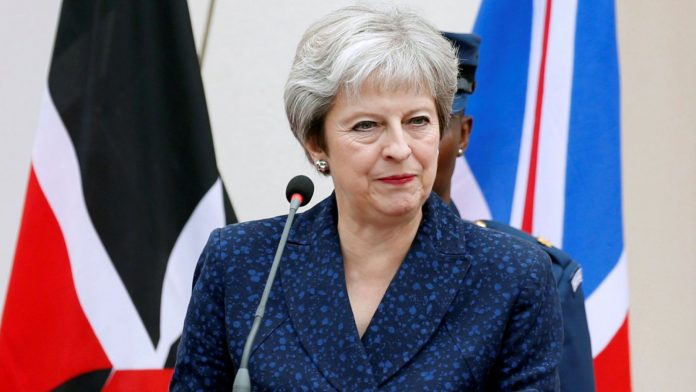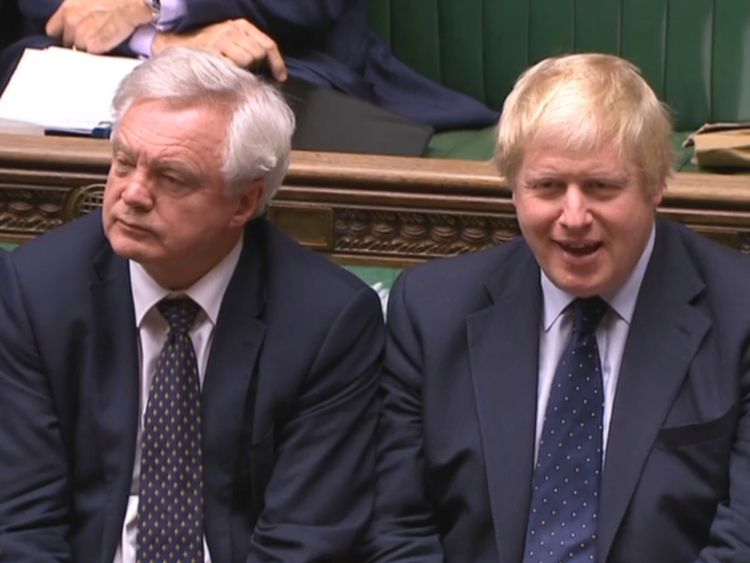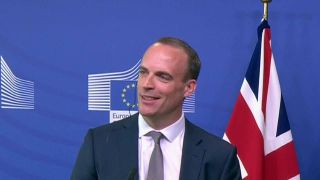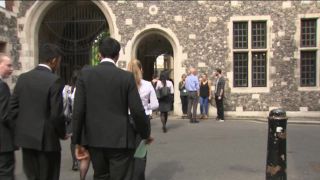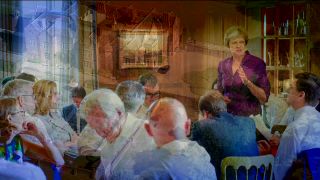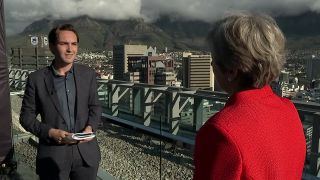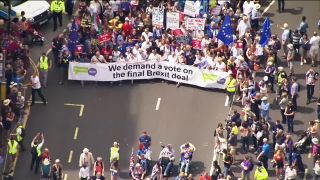[ad_1]
MPs arrive back in Westminster knowing little concrete about how the next three months will pan out.
The decisions made in the coming weeks within parties and in the voting lobby of the Commons will have a profound effect on many of their constituencies, on the British economy and UK democracy – perhaps for decades.
There are plausible routes to another general election, a referendum on the EU exit deal, a proper split in both main UK political parties, the emergence of a major new political force or party and the fall of the “confidence and supply deal” with the DUP.
Some of these will crystallise as quickly as the conferences later this month.
The prime minister can hope to guide the government through these perilous waters.
But she cannot be in full control of where the ship makes landfall, when so much consequential detail needs to be agreed internationally with the European Union and especially its remaining member states.
And immediately she faces a concerted and organised campaign to “chuck Chequers” from an amalgam of Tory Brexiteer groups, building up to the “no-deal” cabinet meeting next Thursday, where backbenchers anticipate that Theresa May will seek approval for new compromises even on the Chequers cabinet deal that could lead to further resignations.
Already Boris Johnson and David Davis have indicated that they would vote against the Chequers deal, if it came back to the Commons.
But the reaction of Jacob Rees-Mogg in Brussels after meeting Michel Barnier told all.
There was delight that the Brussels negotiator was more in agreement with him on the lack of viability of Chequers than he was with the government, or indeed the government with his wing of the Conservatives.
Plans are ready for the launch of an alternative “Canada plus” Brexit model, probably fronted by former Brexit ministers, in the days before the Tory conference.
Among the Brexiteers there is an intriguing acceptance that they might not have the numbers on the Commons floor to force through what they want from the next few months.
It was there from the day that Mr Davis and Mr Johnson resigned, in the words of former Europe minister Steve Baker, acknowledging the Commons maths.
The reaction to such a reality might have been compromise and has been for the likes of Liam Fox and Dominic Raab, who have remained in government.
Instead, many key members of the European Research Group appear to have concluded that there is no majority for almost any of the likely outcomes of the next few weeks.
Indeed despite the bluster, there is also some recognition that there is a more than sufficient number of MPs prepared to block a no deal Brexit too.
Instead the highly organised campaign to get the prime minister to drop Chequers is designed in anticipation of a general election. “As we haven’t got the numbers, we need to change parliament to get a Brexit House of Commons”.
And in order to do that, they need to change the Conservative Party into the Brexit Party.
Proponents talk about having to change not just the leader, but also the decision-makers making selections for winnable Tory seats.
Some welcome the attempts at entryism publicly announced by Leave.EU founder and ex-UKIP funder Arron Banks.
The moves are being timed to allow new members to have a say in a leadership contest – it takes three months to be eligible for any such vote.
The real problem for Number 10, however, is that the people for whom the Chequers compromise was designed, are rejecting it.
The European Commission has all but rejected it.
And hopes of turning the 27 EU member states against the commission in favour of Chequers at a special summit in Salzburg in a fortnight, are now being played down.
The government is relying on the remaining EU member states to hate the economic idea of no-deal more than the UK.
The most important voices in the EU instead appear to believe the economists that within hours of any actual no-deal Brexit, the supply chain logistics calamity, and the highly visible impact of this negotiation failure, will see any UK government back at the negotiation table “within hours”.
But Chequers was also designed to carry the numbers required of top Tory Remainers/single market supporters.
Indeed it was Mrs May’s personal briefing of her plans that averted EU Withdrawal Bill rebellions and defeats.
The rejection of Chequers by top MPs on this wing of the party, from Justine Greening who compared its unpopularity to the poll tax and even Nick Boles who had previously backed it, is ominous.
Privately, some of the Remainer rebels who gave the prime minister the benefit of the doubt in helping pass the key legislation, are still seething about her acceptance of the Brexiteer amendments to the Customs Bill and her own Chequers plan.
In the Department for Exiting the European Union (DExEU) they have already gamed out the moment that the prime minister’s Brexit deal gets put before the House of Commons.
This was done in a war game, even before the Chequers deal was done.
Even before DExEU’s then ministers even knew what was being cooked up at the other entrance to this same network of buildings in the Cabinet Office’s Europe Unit.
That war game led to Mrs May’s deal being voted down as the Tory hard Brexiteers chose not to vote to enshrine payments to the EU of at least £40bn in law, in return for an uncertain trade deal.
The key business lobby groups are broadly supportive of Chequers, and the free trade area for goods.
Indeed, rather intriguingly, some are meeting with senior opposition officials to try to gauge what it will take to get Labour to back the plans, and thus give them a parliamentary majority.
Labour itself is riven with splits over the anti-Semitism issue, and an imminent rule change that will lead to some MPs facing a form of reselection ahead of any election could be the final straw.
But on Brexit the rather significant and lost move over the summer has again been that the shadow trade secretary Barry Gardiner has not been backed over his rejection of any new exit deal referendum demanded by the People’s Vote campaign.
The agreed wording from the most senior members of the shadow cabinet is now to keep “all options open” if there is no deal.
The real problem is that the competing players in the cosmic Brexit whack-a-mole are more focused on what they do not want rather than what they do want.
Parliament has been living out what the late Nobel Prize winning economist Kenneth Arrow called his “impossibility theorem”.
Essentially, where there is more than a binary choice for a society, it is impossible to infer a decision accurately reflecting the “will of the people” from a binary vote.
Indeed the big split by the end of the year could well be on how to settle a prolonged impasse.
Some MPs think a new referendum is the only way to avoid a general election.
Others anticipate and are planning for a general election to avoid another referendum.
The stakes are raised high, as is evident from the official advice in the government’s first tranche of no-deal preparedness notices, the need for stockpiles of medicines, the air freighting of cancer treatments, the advice to exporters to prepare warehousing for customs checks and for tariffs on trade and the end of “free circulation” of goods.
It is a set of decisions as important and consequential as the Corn Laws – tariffs on imported food and grain between 1815 and 1846, designed to keep grain prices high to favour domestic producers.
Amid what will appear to be a prolonged political panto season in both main parties, the serious substance of the next 10 to 12 weeks and its ability to fundamentally reshape parliament and the principal political parties cannot be underestimated.
[ad_2]
